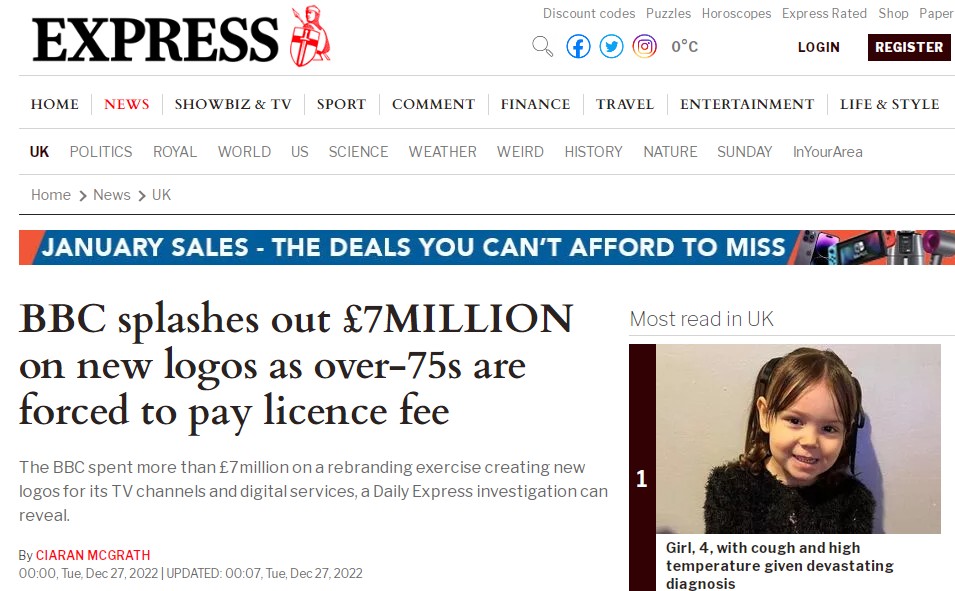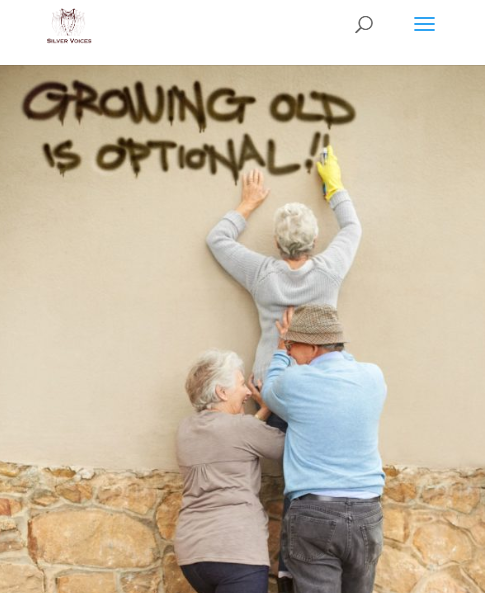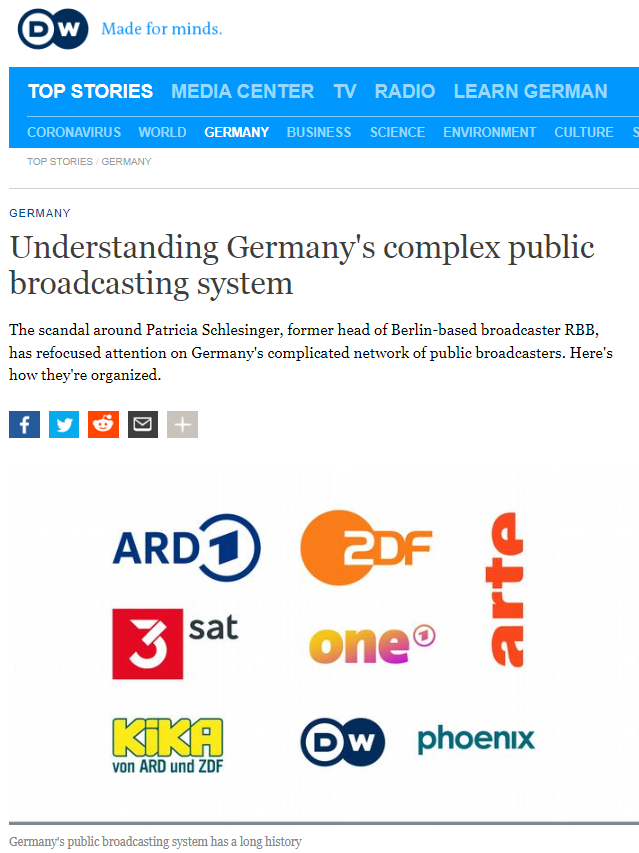
Source
It took a good investigation by the Daily Express to bring to light how much the BBC had spent on the ‘digital rebranding’ of its TV and digital channels. A six-figure sum, over £7 million, strenuously denied perhaps because it was difficult to justify, given the painful cuts made by the public broadcaster, such as the closure of many regional branches passed off as a ‘reshaping of the offer’. The BBC put up a wall for months, despite the fact that the newspaper invoked the Freedom of Information Act, a law that has guaranteed the right of access to information held by public authorities since 2000. So, in the end, the Daily Express submitted a formal complaint to the ICO (an independent body that upholds information rights in the UK) and at that point, the BBC capitulated: eight months had passed.
Too much opacity

Source
The opinions collected by the Daily Express seep into the arrogance of the public broadcaster and its opacity. As in the speech by Dennis Reed, director of Silver Voices, a not-for-profit organisation of over-60s that aims to convey their opinions to political parties to improve legislation. According to Reed, the £7,261,039 spent could have cleared 45,000 subscription fees for the public broadcaster, thus helping most families with an elderly person with dementia, or relieving those struggling with energy bill payments. The BBC has also been reticent with Silver Voices, which, when asked how many over-75s previously exempt from the license fee had come clean, denied having a list. Yet, Reed points out, families who should be regularised continue to receive regular threatening letters ordering them to pay up. Let us hope, therefore, that light will be shed on this too.
Written by Fabrizio Carnevalini

